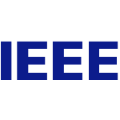Trust has been identified as a central factor for effective human-robot teaming. Existing literature on trust modeling predominantly focuses on dyadic human-autonomy teams where one human agent interacts with one robot. There is little, if not no, research on trust modeling in teams consisting of multiple human agents and multiple robotic agents. To fill this research gap, we present the trust inference and propagation (TIP) model for trust modeling in multi-human multi-robot teams. We assert that in a multi-human multi-robot team, there exist two types of experiences that any human agent has with any robot: direct and indirect experiences. The TIP model presents a novel mathematical framework that explicitly accounts for both types of experiences. To evaluate the model, we conducted a human-subject experiment with 15 pairs of participants (N=30). Each pair performed a search and detection task with two drones. Results show that our TIP model successfully captured the underlying trust dynamics and significantly outperformed a baseline model. To the best of our knowledge, the TIP model is the first mathematical framework for computational trust modeling in multi-human multi-robot teams.
翻译:现有关于信任模型的文献主要侧重于一个人类代理人与一个机器人发生相互作用的dyadi 人类自主团队。对于由多个人类代理人和多个机器人代理人组成的团队的信任模型研究很少,甚至没有。为了填补这一研究空白,我们展示了多人类多机器人团队信任模型的信任模型和扩散模型。我们断言,在一个多人类多机器人团队中,存在两种类型的人类代理人拥有任何机器人的经验:直接和间接经验。TIP模型提供了一个新的数学框架,明确描述两种类型的经验。为了评估模型,我们与15对参与者进行了人类主题实验(N=30)。每对夫妇都用两架无人机进行了搜索和检测任务。结果显示,我们的TIP模型成功地捕捉了基本信任动态,大大超越了基线模型。对于我们的知识来说,TIP模型是计算多人类多机器人团队中信任模型的第一个数学框架。




